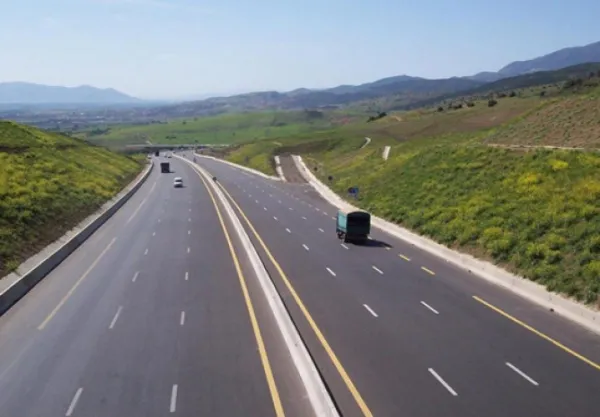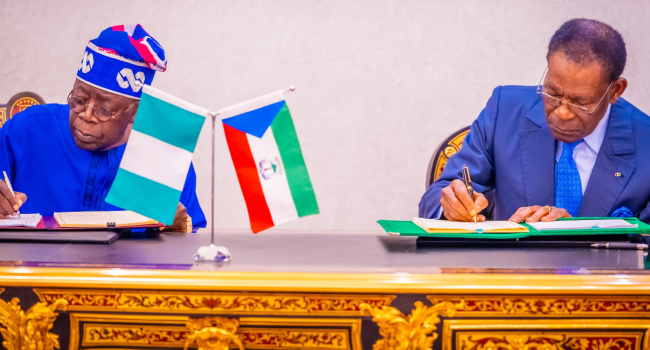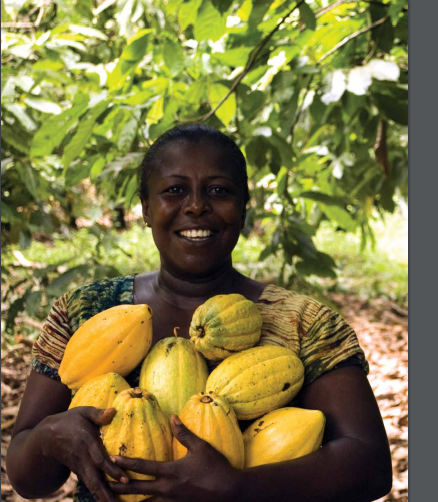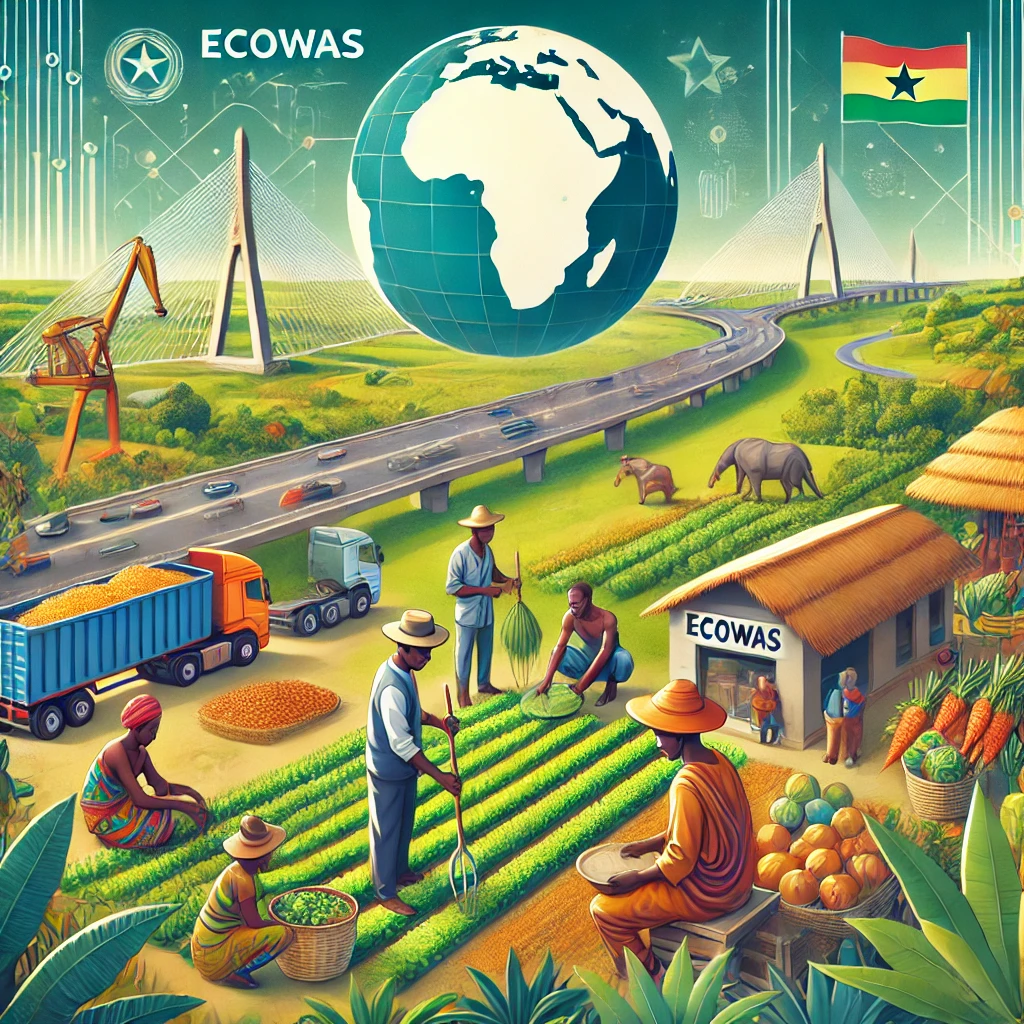Many years ago, West African nations faced major challenges in working together. Trade across borders was difficult, travel between countries was slow, and economies operated separately. Today, the Economic Community of West African States (ECOWAS) has transformed this situation, bringing unity and development across the region.
Founded in 1975, ECOWAS is a regional group made up of 15 West African countries. Its main goal is to promote economic cooperation and development across the region. The member states include Benin, Burkina Faso, Cape Verde, Côte d’Ivoire, The Gambia, Ghana, Guinea, Guinea-Bissau, Liberia, Mali, Niger, Sierra Leone, Senegal, and Togo.
One of the biggest projects in recent years is the Abidjan-Lagos Highway. The Abidjan-Lagos Highway is a 1,028-kilometer (639-mile) road project designed to link Abidjan and Lagos. This major transnational route will pass through Côte d’Ivoire, Ghana, Togo, Benin, and Nigeria, improving connectivity and trade across the region.

This plan aims to connect five countries, making it easier for people and goods to move across borders. When completed, this project will boost trade, create jobs, and improve economic ties among member states. Work is expected to begin in 2026, showing how regional cooperation can drive real change.
Energy security has also improved. In August 2024, Nigeria and Equatorial Guinea signed an agreement to build a gas pipeline that will provide energy to multiple countries. Nigerian President Bola Ahmed Tinubu held talks with Equatorial Guinea’s President Teodoro Obiang Nguema Mbasogo during a three-day visit to the Central African nation. Their discussions focused on various issues, including job creation, regional conflicts, and food security.
Nigeria and Morocco initially agreed in 2016 to construct a gas pipeline aimed at strengthening regional ties and improving energy access while also providing a route for African gas exports to Europe. Supported by ECOWAS, the project is estimated to cost $25 billion and will transport up to 30 billion cubic meters of gas annually. It will be developed in three phases, connecting to existing gas infrastructure.

The agreement with Equatorial Guinea outlines legal and regulatory measures for the pipeline’s construction, operational framework, natural gas transit, ownership structure, and general guidelines for its implementation. This project will offer a steady energy supply to industries and homes, supporting economic growth.
Food security is another focus. The West Africa Food System Resilience Programme (FSRP) was launched to help farmers grow more food and use better farming methods. FSRP is a World Bank-supported project designed to improve food security in West Africa by making food systems more adaptable to challenges. The initiative focuses on better risk management, sustainable farming methods, and the integration of agricultural markets across the region. Countries such as Burkina Faso, Mali, Niger, Togo, Chad, Ghana, and Sierra Leone are key participants, with ECOWAS overseeing its implementation.

This program also aims to ensure food is available for everyone while also creating stable incomes for those in agriculture.
Education and healthcare have seen progress too. ECOWAS has supported the creation of schools and training centers to give young people better job opportunities. In healthcare, the organization has helped fight diseases and improve medical services. During the COVID-19 pandemic, ECOWAS played a big role in helping countries manage the crisis by providing support and resources.
In Nigeria, ECOWAS has helped create jobs and support small businesses. Security programs have also been introduced to ensure communities can grow without fear of violence. These efforts have boosted the economy and strengthened relationships among people.
According to the ECOWAS Bank for Investment and Development (EBID), as of December 31, 2023, the Bank had allocated approximately USD 4.19 billion to support various projects.
Despite the complexities and challenges in the global economy, which have impacted the region’s overall growth by causing fluctuations in commodity prices and other economic indicators, ECOWAS has demonstrated resilience. EBID continues to drive transformative change across multiple sectors, including energy, agriculture, and infrastructure, by funding both private and public sector initiatives.
In 2023, ECOWAS was acknowledged for its role in advancing efforts to combat neglected tropical diseases (NTDs) in West Africa. These diseases affect over 600 million people across Africa, with nearly half residing in ECOWAS member states.
During the ECOWAS Heads of State Meeting, the bloc was honored with a Leadership Award by Uniting to Combat Neglected Tropical Diseases. The recognition celebrated the achievements of 10 ECOWAS countries that are among 21 African nations that have successfully eliminated at least one NTD. Additionally, Ghana and Benin were each presented with a Major Achievement Award for successfully eliminating three NTDs.
Global reports highlight that converting natural land and oceans for other uses is a major cause of biodiversity loss, threatening essential resources like clean water, food security, fresh air, and climate balance. ECOWAS has recognized this challenge and is taking action to protect the environment across West Africa.
The regional bloc has been acknowledged for its strong commitment to tackling biodiversity loss. ECOWAS member states played a key role in securing the global “30 by 30” target, which aims to protect 30% of land and sea by 2030. By developing a regional plan to achieve this goal, ECOWAS is setting an example as the first region to unite for the “30 by 30” initiative.
Despite many achievements, challenges remain. In January 2024, Niger, Mali, and Burkina Faso announced their decision to leave ECOWAS, citing dissatisfaction with sanctions and the bloc’s response to security issues. This move tested regional unity and cooperation.
In response, ECOWAS took steps to maintain stability. The organization lifted some sanctions to encourage dialogue and approved a six-month transition period for these countries to reconsider their decision.
As Chairman of the ECOWAS Authority of Heads of State and Government, President Bola Tinubu continued efforts to convince the military leaders of Niger, Mali, and Burkina Faso to rejoin the regional bloc. During a meeting with ECOWAS Chiefs of Defence Staff in Abuja in 2024, he reaffirmed his commitment to strengthening security and upholding constitutional governance in West Africa.
”No one man is smarter than the group of heads that is here. We will do everything to offer a hand of friendship to them and give them reasons to come back to us,” the president said.
At the opening of the 65th Ordinary Session of the ECOWAS Authority of Heads of State and Government in Abuja, ECOWAS Commission President Dr. Omar Alieu Touray emphasized that the region should be recognized for its progress rather than conflicts, elections, and military takeovers.
Touray warned that the withdrawal of Burkina Faso, Mali, and Niger from ECOWAS would have significant consequences for their citizens and the broader region. He highlighted the challenges of visa requirements, the reassessment of trade and development agreements, and the potential impact on ongoing ECOWAS projects in those countries.
ECOWAS continues to grapple with numerous security and economic challenges that put the region’s stability and growth at risk. These challenges include terrorism, violent extremism, piracy, political unrest, election-related conflicts, drug trafficking, and deadly disease outbreaks. These issues are not confined to individual countries but often spread across borders, affecting the entire region.
Reducing governance costs, tackling corruption, engaging young people, and building local skills are key steps that can improve the region’s progress. These actions will help restore confidence in member states, boost productivity, and give people a renewed sense of hope. The journey of regional unity is still ongoing. While much has been achieved, there is more work to do to ensure that everyone benefits from development efforts.

